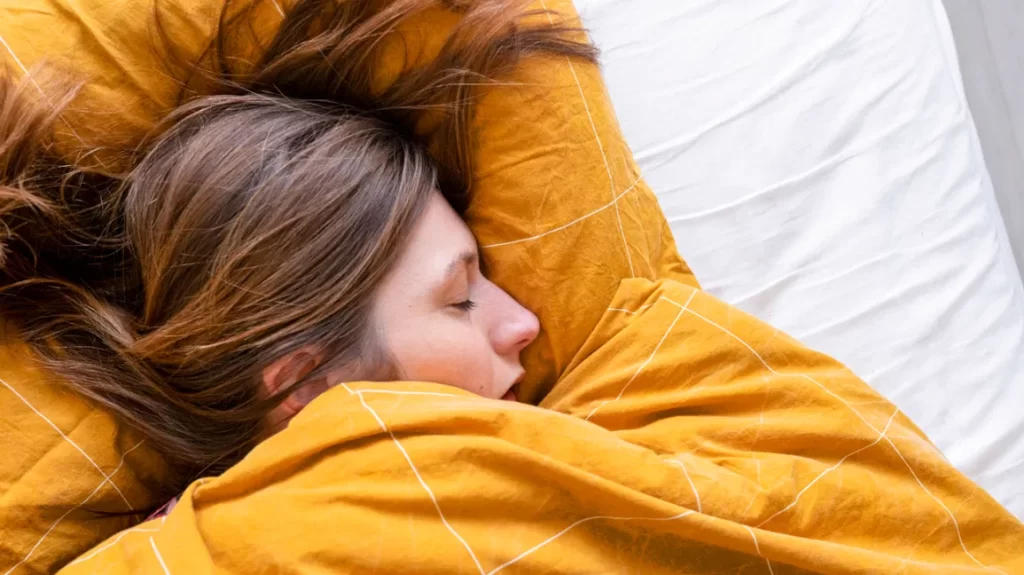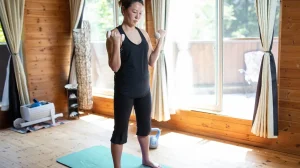Better Sleep Tips to Help You Get a Good Night’s Sleep

Poor sleep isn’t just a frustrating wakeup call — it can also affect your mood, concentration and hormones that regulate weight.
Fortunately, there are simple steps you can take to improve your sleep. From setting a regular bedtime to exercising regularly, here are a few sleep tips that are science-backed and expert-approved.
Set a Regular Bedtime
As much as you may want to stay up later, it’s crucial that you go to bed at a consistent time. In addition to being a healthier way to sleep, a regular bedtime can also help reduce late-night stress and anxiety, which are common causes of insomnia.
Everyone has a different natural rhythm when it comes to sleeping, but a regular routine can help you fall asleep faster and spend more time in REM cycles. In fact, research suggests that people who go to bed and wake up at the same times each night are more likely to feel alert and energized the next day.
According to the National Institutes of Health, adults need about seven hours of sleep each night. Getting enough sleep is essential for a number of reasons, including reducing the risk of cardiovascular disease, obesity, and diabetes.
Setting a regular bedtime is important for many reasons, but it’s particularly helpful for children. A consistent routine helps kids develop healthy sleep habits that will last a lifetime.
Having a bedtime routine involves a series of pleasurable, calming activities that prepare the body and mind for sleep. These can include having a bath, brushing teeth, reading a story and talking with your child about their day.
Some of these activities may be repeated every night, while others can change depending on your child’s age and needs. The American Academy of Sleep Medicine recommends that parents establish a relaxing bedtime routine for their children to promote better sleep.
The key to a good bedtime routine is consistency, but it’s not impossible to do so. A study of 10,00 children showed that those who had irregular bedtimes were more likely to have behavioral issues such as hyperactivity and acting out.
Avoid Screen Time Before Bed
If you want to avoid a sleepless night, it’s important to avoid screen time before bed. The bright lights from electronic devices such as smartphones, tablets and TVs emit blue light that hampers melatonin production, which is the hormone responsible for regulating your body’s clock.
In addition, the rays of light from screens can also disrupt your sleep quality and duration. Studies have shown that people who use cell phones or other devices before going to bed take longer to reach deep levels of sleep and tend to feel less alert the next morning.
The blue light from phones, tablets and TVs also interferes with REM (rapid eye movement) sleep. This is essential for rejuvenating the body and mind to prepare it for a new day.
To help prevent sleep issues, set a curfew for screen use before bedtime and stick to it. It may be difficult for some people to do this, but it’s worth trying!
Ideally, it’s best to set a curfew several hours before bedtime. It’s also helpful to establish a consistent bedtime routine and create a quiet and comfortable environment before retiring for the night.
It’s also important to discourage activities that lead to anxiety or high emotional responses, as these can have a negative impact on sleep. For example, watching a violent video on your phone can make you anxious and disrupt your sleep. The same goes for checking social media or answering emails before bed. Instead, consider relaxing activities such as listening to a soothing music playlist or reading a book before sleeping. Creating these habits will help you to sleep better and wake up refreshed every day!
Exercise Regularly
One of the best ways to improve your sleep is to exercise regularly. It can increase your energy level and reduce stress, which is all important for getting a good night’s sleep.
Exercising can also help you fall asleep faster and stay asleep throughout the night. It has been shown to increase the amount of time you spend in deep sleep, which is restorative and important for your muscles and overall health.
However, exercise can have a negative impact on your sleep if you do it too close to bedtime. As a general rule, it is not recommended to exercise more than three hours before you go to bed.
Another reason it is not a good idea to exercise too close to bedtime is that it can increase your core temperature. Ideally, you should wait until your body’s core temperature has dropped before you go to sleep.
Several types of exercise have been linked to improved sleep, including aerobic exercises like running and swimming, resistance training, yoga and weight lifting. In addition, it is important to pick an activity you enjoy.
The key is to keep it consistent, and try to do it for at least 30 minutes. It may take a few weeks to see a noticeable difference in your sleep quality.
If you need to work out before you go to bed, try light forms of physical activity, such as walking at a slow pace, stretching and breathing deeply. These light exercises will help you relax and tell your body it’s time to get some sleep.
Avoid Caffeine and Alcohol
The caffeine and alcohol that many of us drink can interfere with our sleep and cause issues like nighttime waking, disrupted sleep cycles and sleep problems. It’s important to avoid these substances as much as possible before bed if you want to get the best rest possible.
Caffeine blocks adenosine receptors, which are responsible for regulating the body’s sleep-wake cycle and can affect your ability to fall asleep and stay asleep. It can also interfere with deep sleep, which can lead to fatigue and weakened memory and cognitive processes.
Another reason to avoid caffeine before bed is that it can cause an irregular heartbeat known as atrial fibrillation. This condition is a common heart problem that can be triggered by caffeine and other lifestyle factors.
It can also cause your blood pressure to increase, which is a major risk factor for strokes and heart disease. It can also make you feel anxious and cause a decrease in your alertness, making it harder for you to get a good night’s sleep.
This is particularly true when it’s combined with alcohol. While caffeine can make you feel more alert and able to handle the effects of alcohol, it can also mask its side effects — and that’s a risk you don’t want to take.
Mixing caffeine and alcohol can result in an increased risk of dehydration and alcohol poisoning. These two side effects can be life-threatening, so you should always try to avoid them.
As a general rule, you should avoid drinking caffeine and alcohol within six hours before you go to bed, or if you need to drink them before bed, do so in moderation. It’s also a good idea to create a consistent routine so that you have time to wind down before you go to sleep.
Create a Quiet Environment
Quiet environments are a great way to get the rest you need. Whether you’re working in your office, at home, or even sleeping on a friend’s couch, creating a quiet environment is one of the best ways to ensure you get the sleep you need.
In a quiet room, you’ll be able to focus on the task at hand and not become distracted by background noises. This can make your work easier and help you get more done in less time.
Another benefit of a quiet room is that it will allow you to reflect on what’s going on in your life. This can be a great way to relieve stress and stay positive, which can be important for your overall health.
If you’re having trouble falling asleep, try to create a quiet environment in your bedroom. This will allow you to get a good night’s sleep and wake up refreshed.
You can keep your bedroom quiet by using a fan or a white noise machine, which can both block out distracting sounds. You can also try sound-absorbing curtains or blackout shades.
Having a quiet environment can also be helpful if you have trouble sleeping because of loud neighbors, family members, or pets. These can all be difficult to avoid, but if you’re willing to put in some effort, you can create a quiet space that promotes restful nights.
A growing coalition of environmental organizations, scientists, and grassroots activists is tackling the problem of noise pollution. They’re working to document where quiet has been lost and are petitioning policymakers to reduce or stop helicopter and plane flyovers near wilderness areas. They’re also turning public attention to the fragility of quiet by flagging remaining quiet areas as worthy of special protection.








